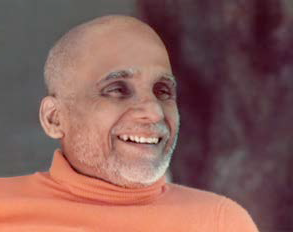In previous issues, three principles of Niyama, namely, Saucha, Santosha, and Tapas – purity, contentment and austerity – are difficult practices unless they are accompanied by certain easier practices. The principal items of Niyama that we have already mentioned are difficult things.
And as they are difficult, they have to be brincolin accompanied by certain other contributory practices, such as the study of sacred scriptures. When everything is impossible of practice, we can at least study a scripture.
is impossible of practice, we can at least study a scripture.
We can go on reciting loudly certain chapters of the Bhagavad Gita, we will feel inspired. We can read loudly certain chapters of the Dhammapada or the Sermon on the Mount or “The Imitation of Christ”. We can recite aloud the great songs of the Alvars and the Nayanars, the saints and the sages, the Bhaktas and the devotees. There are the writings of the Masters, the Yogis, and the adepts. We can study their inspired expositions and ourselves feel inspired. We can do Parayana of the Srimad Bhagavata, the Vishnu Purana, the Mahabharata. We will be stimulated from within in a superior way. That itself will be Tapas. Svadhyaya itself is a great austerity, a great devotion, a worship, a meditation.
Svadhyaya is a religion by itself. There are some people who spend their whole life in Parayana only. They neither know nor do any Yoga practice other than Parayana. The spiritual seeker should go on reciting a sacred scripture everyday, concentrating his mind on its meaning, absorbing his mind in it and becoming that almost. Because, when he cannot summon sublime thoughts to his mind independently by himself, he has to take the aid of the thoughts of the great people which are recorded in the scriptures. When he cannot think for himself, he can at least acquiesce in the nature of the thinking of other persons who are superior to him, thinking which can be communicated to him by their words, discourses and writings.
Svadhyaya is not going to a library and reading anything that is there. That is a different thing altogether
Svadhyaya is sacred study, a study of one’s own self, “Sva-adhyaya”, or rather, a study of anything that is connected with the nature of one’s own self, that is connected with the practice of austerity, connected with the goal of life, the aim of Yoga or God-realisation
It is sacred study that we call Svadhyaya and not the reading of any book for the purpose of information merely. If one reads the Encyclopedia Britannica, it is not Svadhyaya, though one may gather a lot of information from it. Svadhyaya is sacred study of a holy scripture imbued with and charged with bouncy castle for sale divinity, because such a scripture is a record of the words of great incarnations, mighty sages. The chanting of Mantras is also regarded as a part of Svadhyaya. Japa of Om, or of one’s own Ishta Mantra into which one has been initiated by his Guru, is also regarded as a part of Svadhyaya, in addition to the study of a scripture or a holy text. So, Japa of a Mantra or study of a holy scripture is Svadhyaya, which one can resort to with benefit















 About the Author
About the Author


 Other
Other